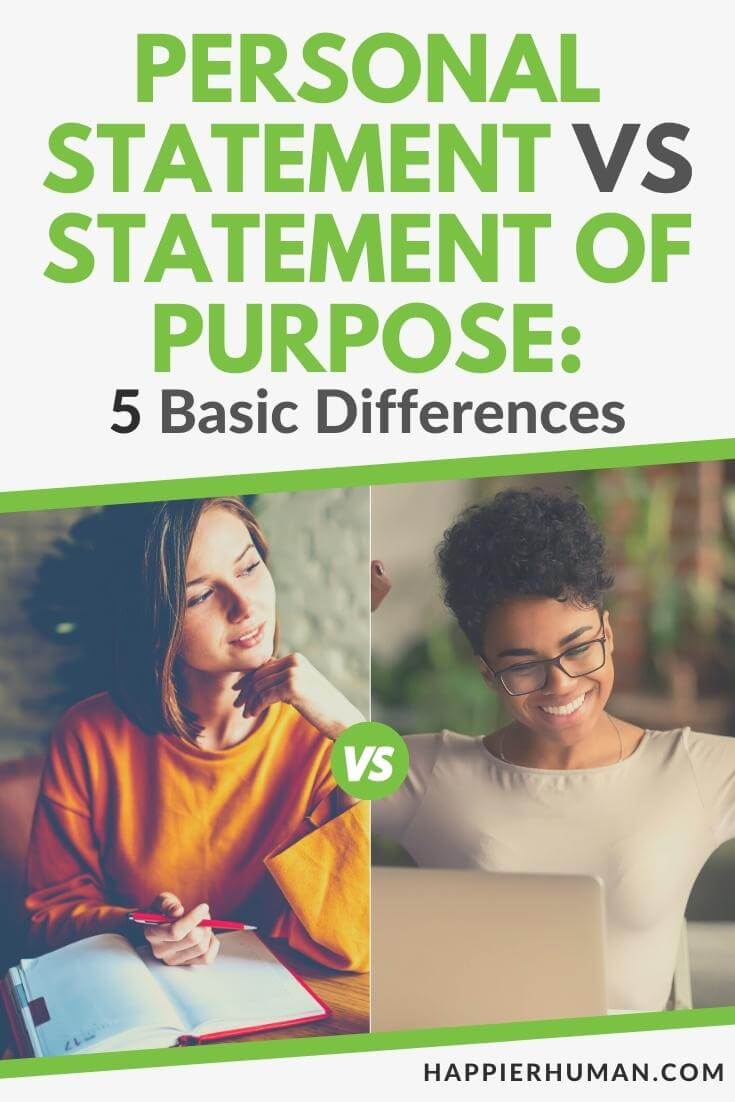One of the most significant phenomena we question in life is finding out exactly who we are as a person and what our purpose is. Unfortunately, we are unfairly asked to figure all of this out by the time we graduate high school at 17 or 18 years old. However, in reality, many individuals in their 40’s and 50’s are still trying to solve the puzzle of their lives.
Our first step is to personally discover who we are, what we like, dislike, value, are good at, and what motivates us. Then, from that internal reflection, we discover our purpose and understand what we have and what makes us unique. Furthermore, we use personal experiences, values, and interests as the framework to determine how we can best serve others.
What is a Personal Statement
A personal statement describes a person's interests and achievements. For example, you may be asked to provide a personal statement in an application for college or a career you seek to embark upon. It shows recruiters what you are all about and has a more inward focus, shining a light on your experiences and core beliefs.
A personal statement answers the questions, “Who are you, and what do you value?” Colleges have made personal statements a significant part of their application process, requiring applicants to describe themselves in essay form. Especially since they aren't relying on the scores on standardized testing as heavily as they once did.
A person’s personal statement should give an idea of the skills, qualities, and values that they set over their lives. Then they should reflect on how those skills prepare them for the opportunity they are applying for.
Excellent personal statements demonstrate the following qualities about us.
What is a Statement of Purpose
In a statement of purpose, we demonstrate to recruiters and HR managers how we desire to put our values, interests, motivation, inspiration, goals, gifts, and achievements into action.
For instance, think of some of the coolest superheroes ever, Superman or Superwoman. Both of them have powers of invincibility. They are sympathetic to those in danger and those who are defenseless to help themselves.
In addition, they can dodge bullets, lift heavy objects, and fly at the speed of light. So, a statement of purpose for them would be to demonstrate how they desire to put those powers to use for good.

The same goes for us.
We must answer a few of the following questions in a statement of purpose. How will our values change the workplace? What will we do to make the best of the opportunity if accepted into the school? How will our work ethic, motivations, and goals benefit others?
As it was said to Spiderman, “With great power comes great responsibility.” Statements of purpose demonstrate how you will respond to the responsibility.
Furthermore, it tells the world “What you stand for.” My grandpa always said, “If you don't stand for something, you'll fall for anything.”
Moreover, statements of purpose cause us to look at where we are now and determine the path we will take to get to where we are trying to go in our lives, careers, etc.
Lastly, a statement of purpose can serve as a guardrail to our lives, keeping us true to who we are and the dreams and aspirations we desire to achieve. This is especially important when things are difficult, and we are tempted to change course and give up.
Personal Statement VS Statement of Purpose: 5 Basic Differences
1. Personal statements have more of an inward focus on us.
In contrast, statements of purpose are focused outwardly and how we will serve others.
2. Personal statements explain why you are the right person for the job, program, or task.
While a statement of purpose tells others why you want to take on those jobs, programs, or duties.
3. Personal statements are backward-focused.
They look at what you did in the past to prepare you for the opportunities you seek in the future. Whereas statements of purpose are forward-focused.

They explore your career goals and interest that you wish to explore in the days ahead.
4. Personal statements paint a picture of who you are today and how your life has been shaped by your personal and academic experiences.
Therefore, qualifying you as a unique candidate. On the contrary, statements of purpose explain why you are suitable for the opportunity (maybe even above all others) because of your uniqueness and why the organization or institution is right for you.
5. Personal statements have a touching way of explaining how you relate to the pain points of others and what qualifies you as a solutionist.
It requires transparency into who you are and what makes you tick. But statements of purpose give a roadmap as to how you will serve to relieve those pain points.
It requires an intimate knowledge of what a school or organization is looking for.
Final Thoughts on Personal Statement VS Statement of Purpose: 5 Basic Differences
Whether preparing a statement of purpose or a personal statement, you are challenged to look within yourself and see what you are made of. We must remember that we didn't learn from our “mistakes” in life, but from our “experiences.” Some good, some not so good. However, all of them made us into the person we are today.
You may be a person who understands heartbreak, diversity, being disadvantaged and suffering lack. In addition, we know how it is to be down, counted out, and written off… yet we overcame.
Those things shaped our values, life-changing experiences, motivations, and interests. Therefore, they even helped us discover God-given gifts we never knew we had. That is what qualifies us. That is our personal statement.
Then because of those experiences, we demonstrate our statements of purpose. We show that we are capable, knowledgeable, and have the blueprint to help others find the success they desire.
Furthermore, we are ready to display how those things shaped us into the missing puzzle piece for an organization’s puzzle. In conclusion, both statements help us to realize that our experiences are not just for us. Instead, they qualify us for a greater purpose, much bigger than ourselves.


